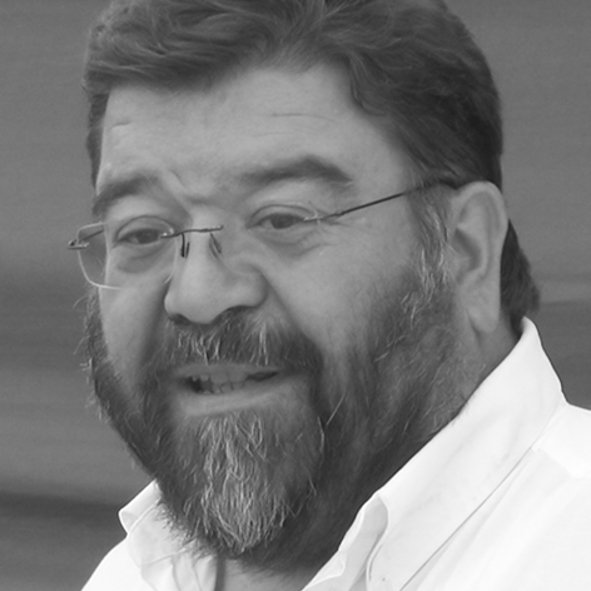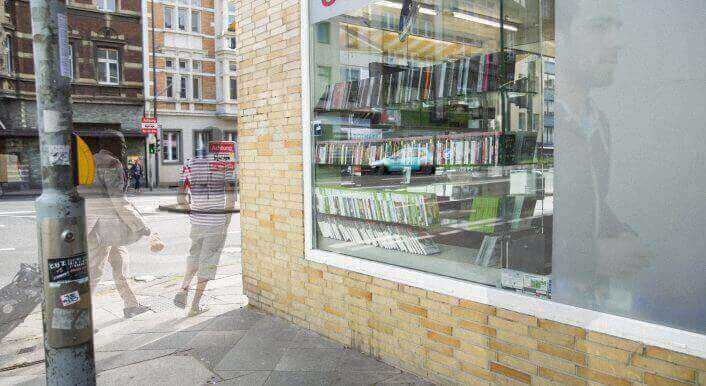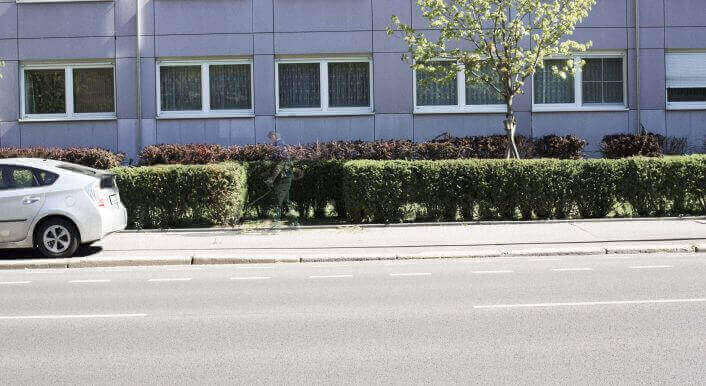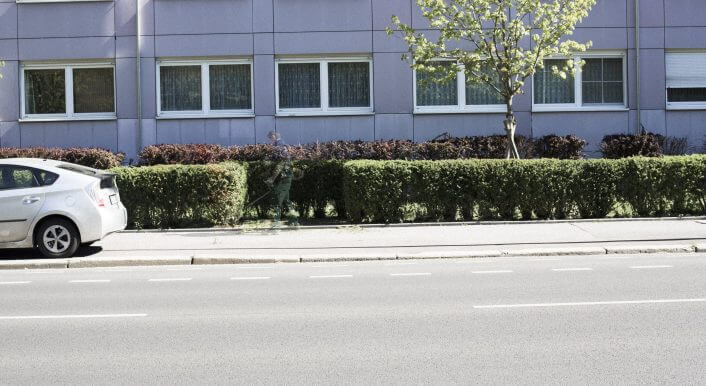An Act of Grace as the Last Chance
Around every fifth day, the Jesuit Refugee Service makes an application to the Berlin Senate. Then a commission has to decide whether an immigrant can stay. The law says: “urgent humanitarian or personal reasons” must “justify a further stay of the foreigner on federal territory”. In cases of hardship, people can stay – if the Interior Minister approves.

Accordingly, the commission that decides on the fate of these people is called the Hardship Commission. It consists of representatives from politics, the state authorities, charities as well as the migrant and refugee councils of various church groups. Father Frido Pflüger is at the negotiating table for the Berlin archdiocese, he is the head of the Jesuit Refugee Service in Germany. Benedict Wermter spoke with him about intractable authorities, controlled migration and the work of the Hardship Commission.
Father Pflüger, you have said that last year you had 800 conversations with people who asked for your help. And some of your clients sought your advice two or three times. Every year you make 70 to 80 applications to the Berlin Senate administration which the Hardship Commission then decides on. Can we assume that you would prefer that your work and the Hardship Commission were not needed?
Father Frido Pflüger: We need the Hardship Commission because the legislation on the right of residence is insufficient. But even the best legislation is insufficient and cannot fairly account for all cases. There is a difference between law and justice. For that reason the Hardship Commission is beneficial – because every legal construct has cumbersome and problematic aspects. There is no perfect law. According to the clause on cases of hardship in the residency law, the Interior Minister can decide on hardship cases based on recommendations from the commission.

Frido Pflüger
How does the Hardship Commission prepare for these difficult decisions?
The Hardship Commission prepares an act of grace. The people come to us, we look at their story, check whether there are humanitarian reasons and see if a person or even a whole family should stay. Decisive criteria include the length of their irregular residency, integration efforts, a secure livelihood and language skills. These commissions exist for every federal state.
Who decides on these difficult cases?
The Berlin commission consists of representatives from the Catholic and Protestant Churches, the Refugee and Migration Councils and from the League of Charities. There are also two representatives from the state authorities. Every representative can bring in applications that they prepare. Before the Interior Minister makes the decision, we discuss and vote on every single case in the Hardship Commission.
Do you always use your position to vote in favor of the residency permit?
Sometimes there are critical cases where one says: „I have doubts with this one.“ Then one can abstain.
Many who support „illegal“ residents call for abolishing asylum laws and liberalizing the right of residency. Do you stand for uncontrolled migration and the right of residency for everyone?
Pflüger: Difficult question. I actually stand for controlled migration: every state has the right to shape its own civil life, in cooperation with its neighbors and the world community of course. I would not want to uncritically support the right of residency for everyone because there are people where we can say: „We don’t really want to have you here.“
As far as the authorities are concerned, people who live in Germany without a residency permit are invisible until they dare to come out of hiding. It appears that you see these people, even meet them and speak with them. What role do „illegal“ residents play in the work of the Jesuit Refugee Service in Germany?
People keep coming for guidance on hardship cases where it turns out that they do not have a residency permit – that means they are „illegal“. These people then try to regularize their stay through a hardship case application. This does not always work in other states in Germany because some Hardship Commissions have the prerequisite that people must have been previously registered with the authorities. But in Berlin we can also take people who do not have a permit yet. In that sense we are ahead of the others in dealing with the Invisibles.
Which group among the Invisibles deserves more protection within the residency law – „illegal“ refugees or people who overstayed their visa?
Refugees are people who want to escape danger, they deserve special protection. We must save them from returning to their home country where people face unbearable circumstances. This is not necessarily the case with people whose visa has run out. If someone has lived in Germany for five years without attracting attention, then their life is not in danger. They lack civil rights and this is what we must change. For example with a right of residency regulation for „illegal“ people.
You criticize that Invisibles who want to become legal must first disclose their illegality and then fight out in the open, for instance when they make applications.
Something has to change here: we could allow for an anonymous initial inquiry and see whether a regularization is possible. Unfortunately, this sensible solution is not applied everywhere because the states are responsible for implementing such solutions, and often there is a lack of willingness to try new models.
You encourage the immigration authority to take a more sympathetic approach in looking at the legal basis for transitioning to legal residency. Do you have the impression that they do not exhaust all possibilities?
Sometimes I do have that feeling. We see that in the commission: we make an application in the commission, and then it turns out that there is another solution. If the authorities had put more time into one or the other case, there would have been no need for us to make an application. So it could have happened earlier.
Do the authorities let it come down to that?
I would not formulate it on such negative terms. Sometimes it’s human weakness, no matter what authority they work at (smiles). There are stories about people who come to us and complain bitterly about the way they are treated. But there are also people within the authorities who have a very positive attitude and want to help. It would be unfair to say: „They don’t do anything there.“ There are just interpersonal problems.
The discourse on refugee immigration is in full swing. Is there a need for journalistic investigation in light of the debate on refugees?
Even with critical journalists, you read about „waves of refugees“ or „mass immigration“. That is all nonsense, the numbers don’t say that. I think that phenomena such as Pegida arise because people are not informed. I see the press as having a responsible task.
Translation: Noah Walker-Crawford
Editor: Florian Bickmeyer
Design: Thorsten Franke, Simon Jockers, Ivo Mayr



